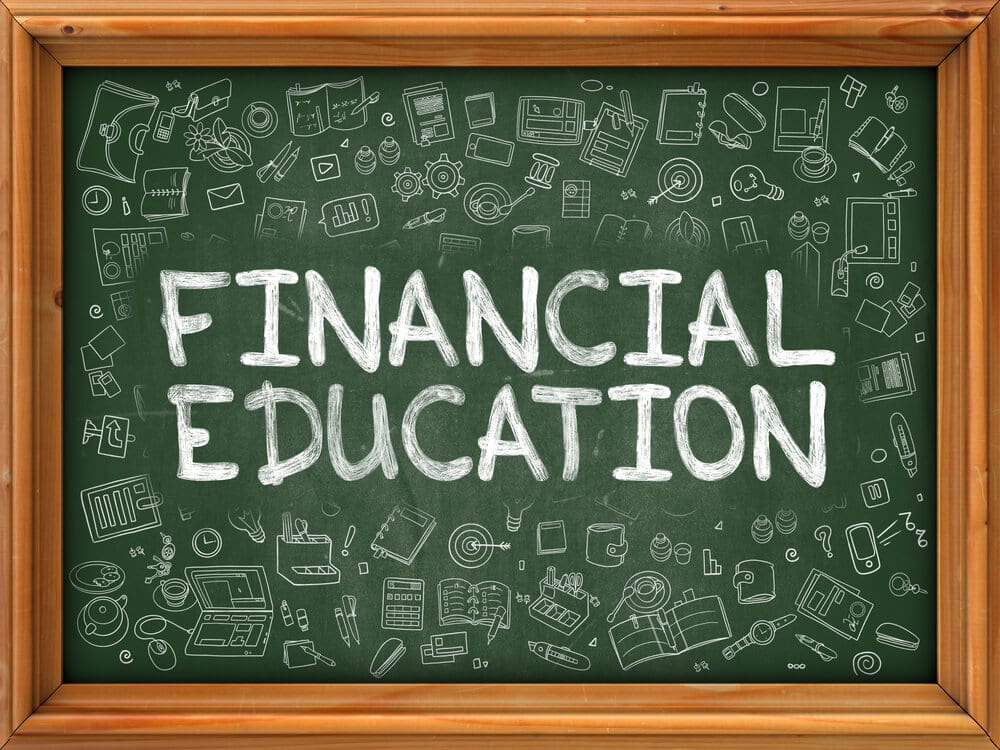Many parents aren’t up to the task of educating their children about money and many of the schools also fail.
Are you ready to become your child’s financial educator? And is your child’s primary or high school furthering your child’s money knowledge? Are they offering him or her any money education?
These are troubling questions facing millions of American households at a time when tens of millions of Americans have financial problems. These include not saving enough for retirement, having little or no higher education funds and often not having an emergency fund to protect unexpected expenses.
They are troubling because your child’s lack of a financial education, either at home or at school, could ruin his or her life. And, despite some recent progress, the majority of American high schools still don’t require graduates take at least one personal finance course, according to financial education advocacy groups.
Most States Lack on Financial Education
Only twenty one out of 50 states require financial education courses to graduate from high school, according to the Council for Economic Education latest “Survey of the States,”
http://councilforeconed.org/survey-of-the-states-2020/
And five states plus the District of Columbia don’t even include personal finance in their standards, the report said.
Yet money management education for children and young adults is “increasingly important,” according to the Financial Educators Council (FEC). It says the problem is not only in the schools; it often begins at home. Households are places where a Federal Reserve found that 40 percent can’t withstand a financial emergency of $400 or more.
“While it’s likely that no one will argue that financial education is not vital to kids growing up to be economically successful adults, there is sometimes debate on who should teach them these skills,” according to the “Survey of the States.”
Money Knowledge Not Passed On
In previous generations, these money management values have generally been passed on at least in part by parents to children based on family values and resources, the paper said.
But what happens the Council asks, “when parents don’t have the financial literacy knowledge to pass on to their children?” And what happens when neither get sufficient financial education? Several studies have documented a knowledge gap.
A 2016 study by FINRA reported that 60% of American adults have not been offered financial education by a school or employer, and even fewer have taken advantage of the education offered.
Financial Capability Study: U.S.
http://councilforeconed.org/survey-of-the-states-2020/
The study also found that that about half of American consumers don’t have three months’ worth of an emergency fund. And most, 69 percent, “are not satisfied with their personal financial condition,” FINRA reported.
A 2011 survey by broker Charles Schwab also reported that, of 1,132 teens surveyed, 42% stated they wanted parents to talk more about money. But only 32% of these teens stated they knew how credit card interest and fees work.
Start Early
It makes sense, educators and financial professionals say, that financial education is taught in schools along with the standard core subjects of English, math, and science, educators and financial professionals say.
They argue that teaching financial concepts in the classroom is one promising way to improve financial capability and economic success for young people. This, they say, ensures that all can learn about finances, regardless of their family’s financial background or experience.
Some states seem to be taking notice. A few more states recently started to push for financial education, according to the Survey of the States.
“Most high schoolers had at least some access to personal finance, with almost 70% provided the option to take at least a one-semester elective. However, less than 17% of high schoolers were required to take at least one semester of personal finance,” according to the survey. The survey also found that the failures of financial education contributed to income inequality.
“In states where there is no required one-semester personal finance course, there are large gaps between schools educating higher and lower income students,” the survey said.
Yet the Consumer Federal Protection Bureau (CFPB), in a recent report, affirms the effects of early financial education.
The Road to MoneySense
Well-implemented state financial education mandates led to a clear improvement in financial behaviors,” according to the report. It says that “Many U.S. financial education programs improve financial knowledge for students, though effect sizes vary based on the population served, amount of instruction time, and topics covered.”
The United States Is Still Behind
But the federal agency also said other advanced industrialized countries do more than the United States.
They “have used more widespread randomized controlled trials to study the effects of programs as they embed and expand them broadly. Those studies also provide useful information.”
It’s time for the United States to catch up with the rest of the advanced Western world economies. It’s time to take early financial education seriously.
![]()
